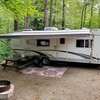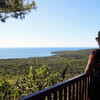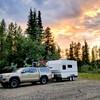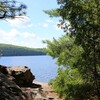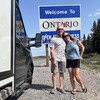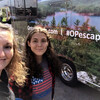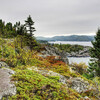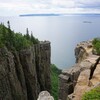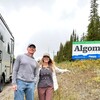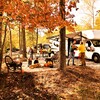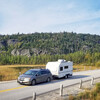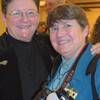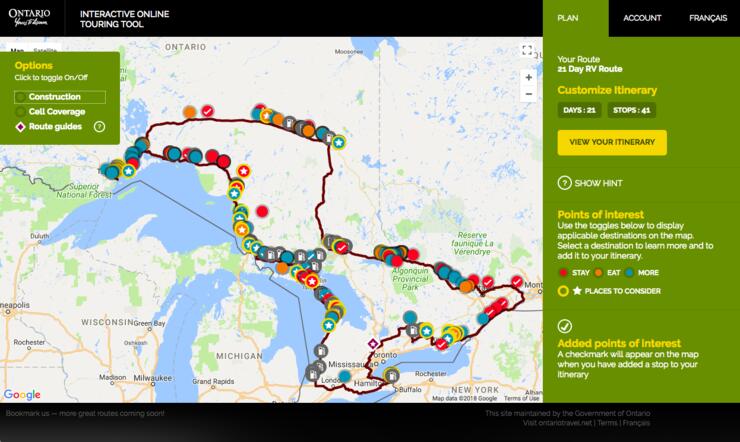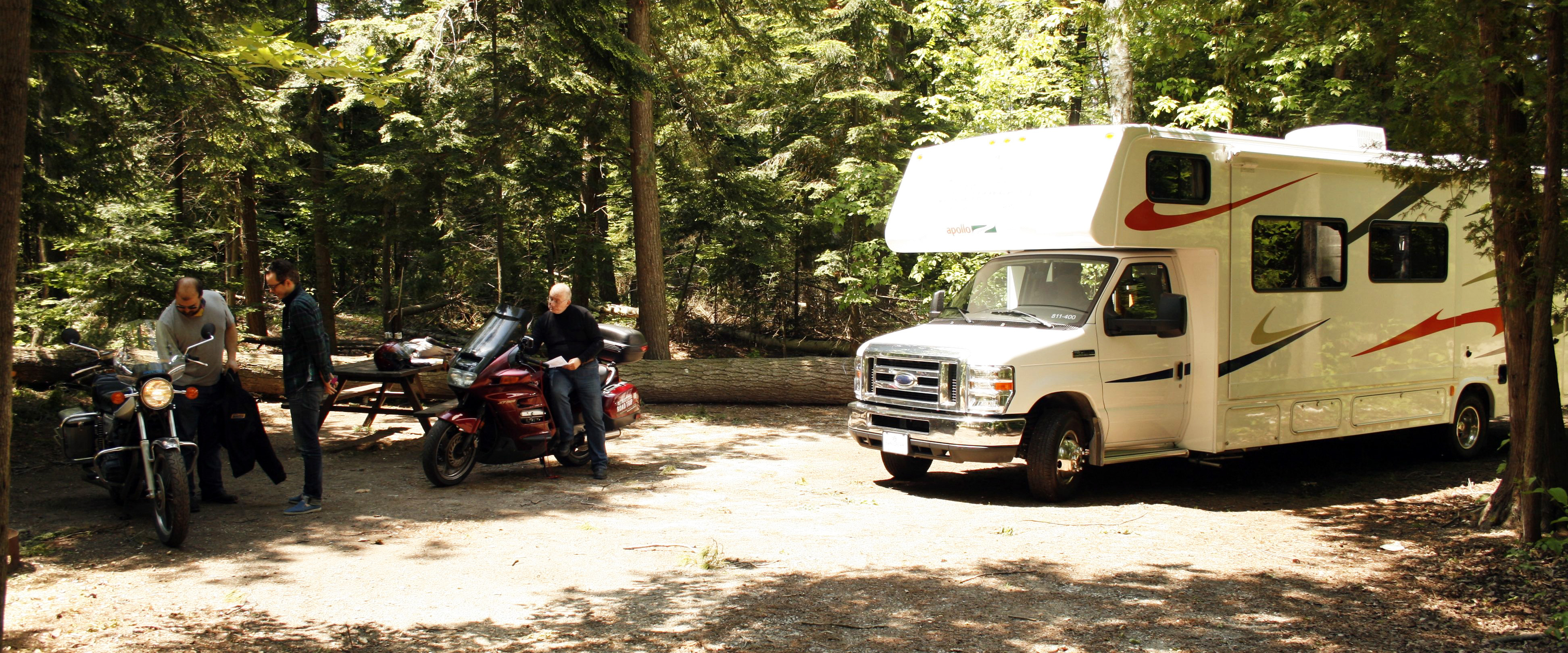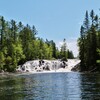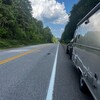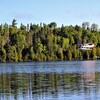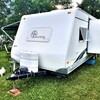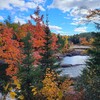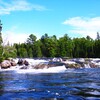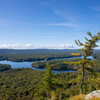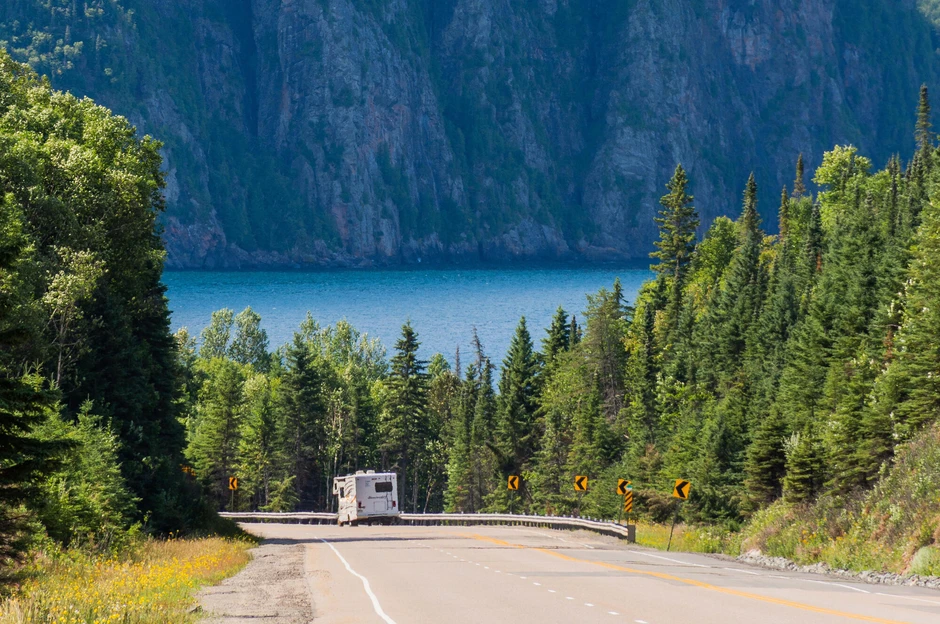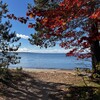
Re-Live the Fur Trade at Fort William Historical Park
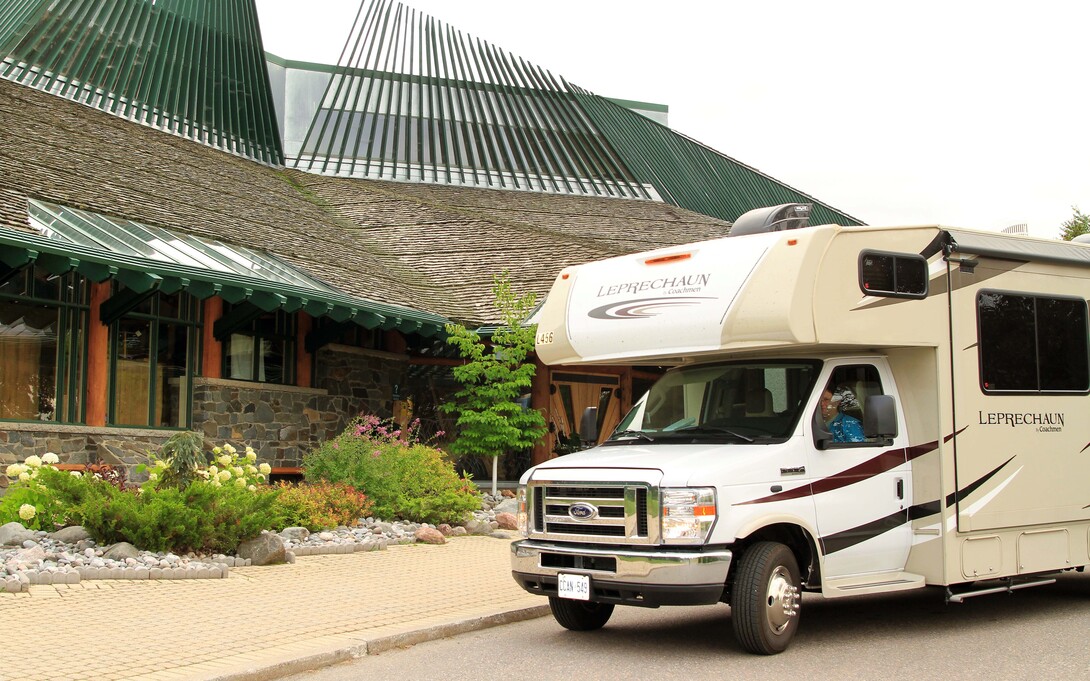
There are plenty of wonderful things to see and do in Northern Ontario along the Lake Superior Circle Tour. One of the most captivating is Fort William Historical Park, just south of Thunder Bay. This fascinating National Historical Site of Canada recreates life in 1816 in the world’s largest fur trading centre. In 46 reconstructed heritage buildings on 250 acres of pristine wilderness and boreal forest, costumed interpreters make this exciting period of history come alive. There’s also an excellent onsite RV park on the banks of the Kaministiquia River for RV and tent camping.
In the summer, Fort William is a busy place with travellers, tour groups, and groups of children enjoying multiple tours. We visited during September, when the weather was still warm and sunny but the crowds had thinned. Our tour guide, Francois Bouvet, dressed in a long-sleeved cotton shirt, leather pants, and boots, met us at the palisade gate. During the winter months, Bouvet is a university history student, but here at the fort he interprets the role of a Fort William blacksmith.
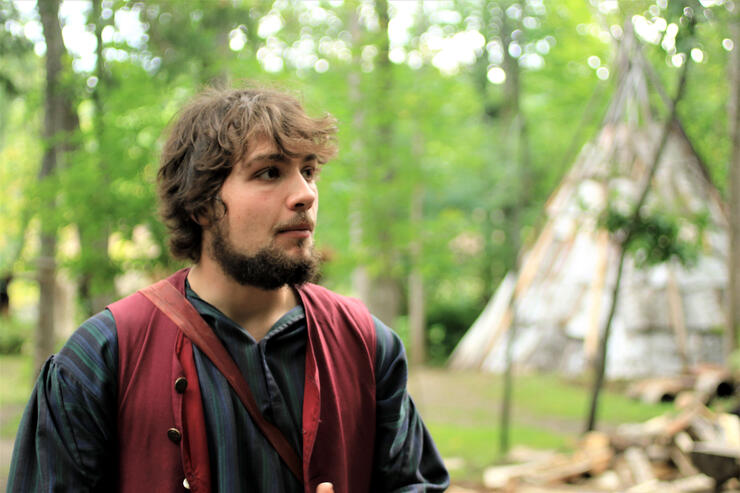
Fort William was the central transport depot for the North West Company’s now-defunct network of fur outposts. The company used European and native Anishinabe (Ojibwe) hunters to collect furs that French Canadian Voyageurs would transport by large birch bark canoes from outlying posts. At Fort William, furs were traded for goods like cloth, guns, and iron pots. From the Fort, furs were shipped to Europe where they fed the seemingly insatiable hunger for pelts for Beaver felt hats and other fashions.
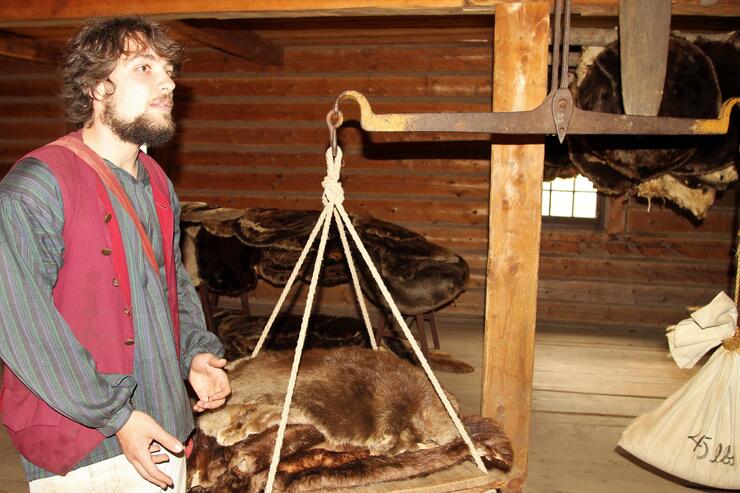
Bouvet lead us into Dr. John McLoughlin’s house and apothecary. McLoughlin served as both Fort manager and physician. Dr. McLoughlin’s apartment is spare—an iron bed, wooden chair, nightstand, and washbasin. But his apothecary is filled with a fascinating array of intimidating-looking medical tools and ingredients like alum, ginger, cinnamon, manganese, cardamom, and tamarind, from which he mixed tinctures and medicines to treat the fort’s residents and visitors.
The Grand Hall was where the men of higher stature—clerks, senior clerks, and company partners—gathered to eat. One of the perks of fort life for these employees was plenty of fresh food, including dairy, bread, and meat. A mid-day meal, our guide told us, would consist of a lavish spread of up to ten dishes like hors d’ oeuvres, soups, salads, meats, and drinks. In the corners of the building are bedrooms where company agents from Europe would stay.
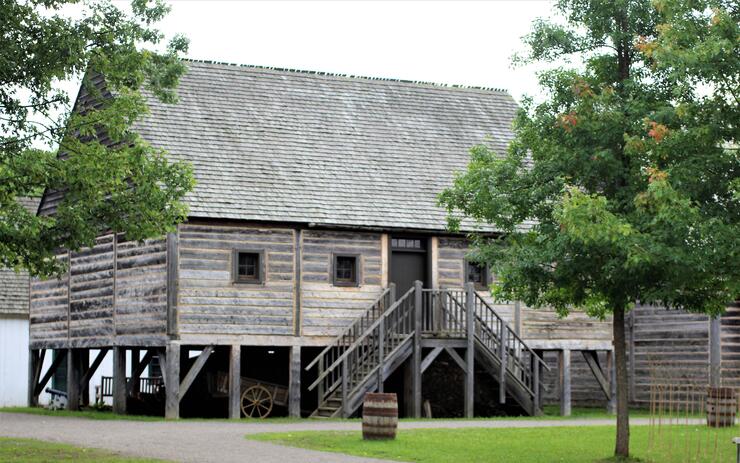
Across the main courtyard, the fur warehouse is filled with pelts from the myriad of animals hunted in Canada and the northern U.S. during the 1800s, including fox, mink, bear, and beaver. It took eight beaver pelts to trade for one gun or one fancy blanket, Bouvet told us.
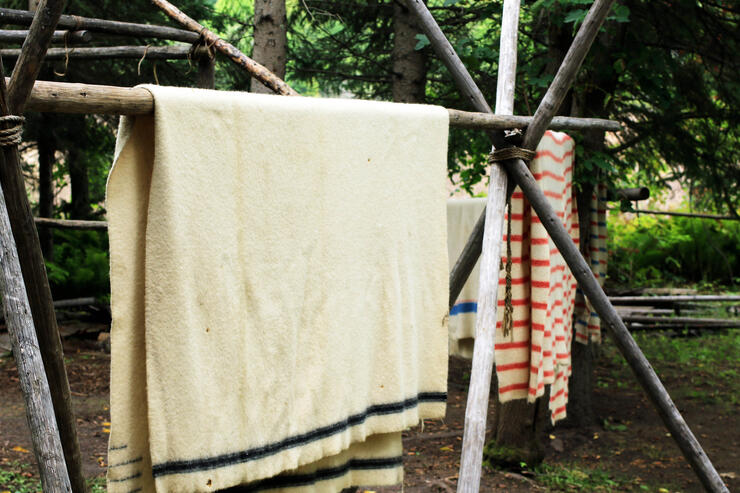
Blankets hanging to dry in the courtyard
He also pointed out the large packs that were loaded with furs for canoe transport by Voyageurs. During the journey, a Voyageur was responsible for six packs, each weighing 90 pounds. The men would paddle their canoes and portage the furs and canoes overland between waterways, carrying two fur packs at a time.
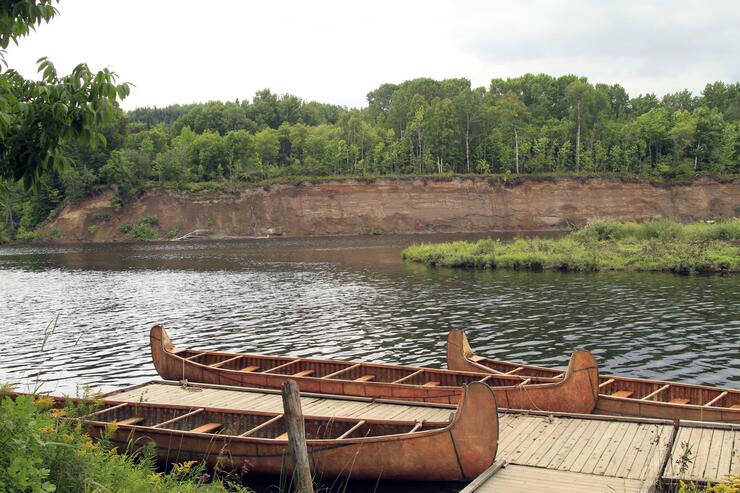
It was nearly closing time as we neared the Fort’s gate. That night we’d stay at the campground where for $35, we’d be treated to a riverside site with 20/30/50 amp service, fresh water connection, picnic table, fire ring, free Wi-Fi, hot showers, and an RV dump.
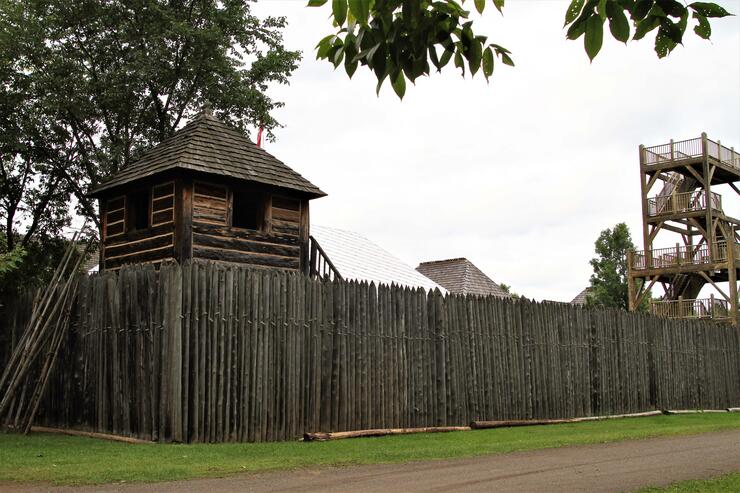
Fort William helped shape the course of Canadian culture and we were eager to learn more. The next day, we were up early to dig even deeper into this historic gem. While we loved yesterday’s guided tour, today we wanted to simply explore the grounds at our leisure. At the Council House, we found costumed interpreters preparing food, including baking fragrant period breads over the massive hearth. The baker offered us a warm slice and it tasted delicious.
In the blacksmith shed, we watched the smithy pound out iron implements amid fiery showers from a blazing hot coal fire. We strolled through the tinsmith sheds and talked with the armourers about their impressive collection of antique firearms. We also scrambled up the Observatory Tower for an expansive overview of the fort grounds.
Down by the river, we explored the large Objibwa village as well as the Voyageur encampment. The First Nations peoples worked hand-in-hand with the traders at Fort Williams to supply Europe’s insatiable desire for furs. At the Voyageur’s camp, we checked out their massive canoes filled with those heavy packs for transporting furs and marveled at the physical strength it must have taken to haul the freight to Canadian ports for shipment to England.
By the time the afternoon sun began to wane, our heads were spinning with all the historic color and artifacts at the fort, yet we’d just begun to scratch the surface of this place. There was so much more to see, including the tradesmen’s house, tailor shops, carpenters’ workshops, canoe sheds and the David Thompson Astronomical Observatory, a modern-day star-gazing marvel for the casual observer or serious astronomer. Fort Williams Historical Park is a place you can explore for days or even weeks and always find something new and interesting. As we headed back to our RV, we were already planning our next visit.
Recommended Articles
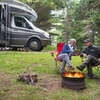
The Complete 2026 List of RV Shows in Ontario
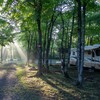
RV Camping Sites in Ontario: The Ultimate Guide
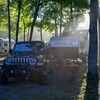
An RV Camping Guide to Ontario's Provincial Parks
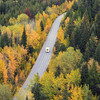
4 Essential RV Itineraries From Toronto
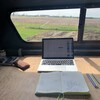
5 Tips on How to Go Full Time Remote Work With Your RV
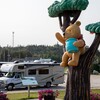
RV Summer School: An Educational Road Trip That Kids Will Actually Enjoy
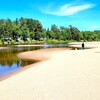
A Guide to RV Camping at Pancake Bay Provincial Park
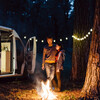
Love on the Run
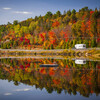
Have Your Toured Ontario's Provincial Park Nature Trail?
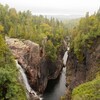
An RVer's Guide to the Voyageur Trail
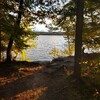
Camping and RVing in Restoule Provincial Park
